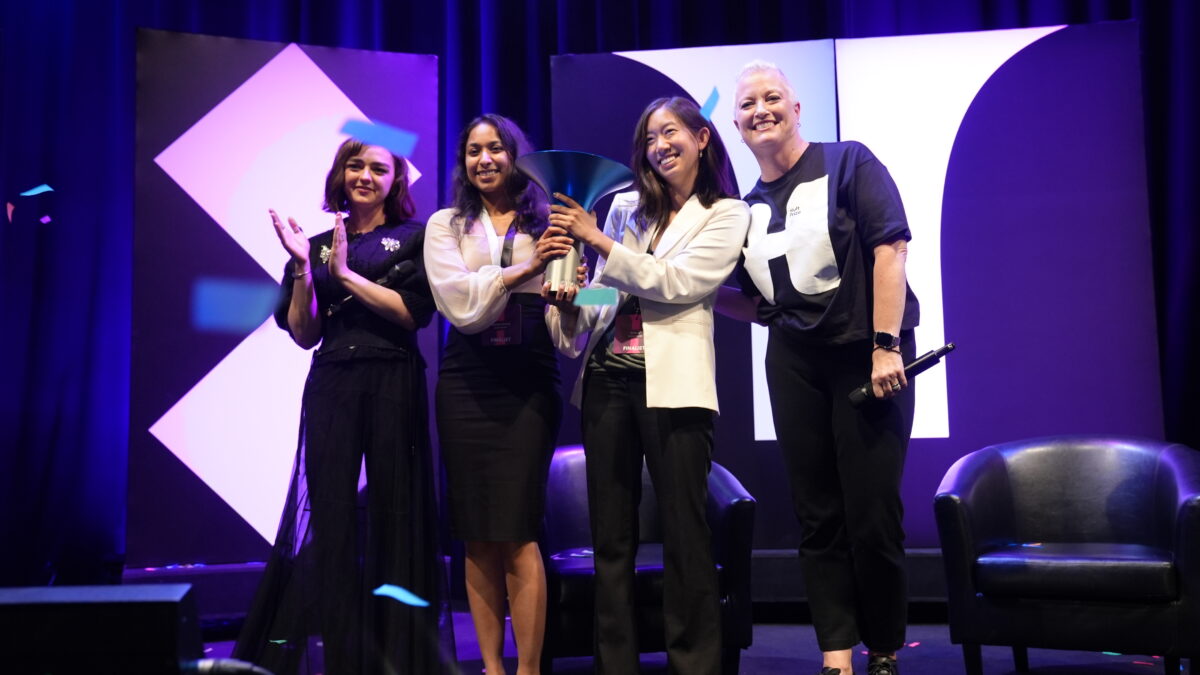The Hult Prize 2024 is officially over. And, while the winners have been crowned and celebrations have begun, the brilliantly innovative business ideas of the six finalists cannot be forgotten. Regardless of the results, these students can hold their heads up high, knowing their unique sustainable business ideas have a place in the future of this world. We caught up with the six finalists right before the biggest pitches of their lives to date. Here’s what they had to say
Lothgha, Mansoura University, Egypt
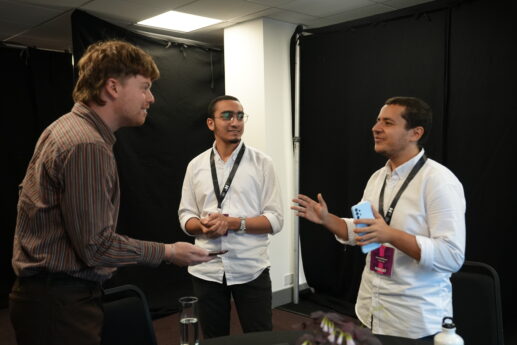

One of our founders, Hamza, himself suffered from a speech disorder and used the app to undergo a complete transformation. We spoke on stage at the Hult Prize Finals in front of thousands of people. The ultimate testament to the work Lothgha is doing, and their first successful customer.
It works like this: Users sign up with their speech disorder and other personal details. The app then personalizes a 38-day program of exercises to train the tongue in ways it is unused to. The tongue is just another muscle, and if repetitively trained, it can learn memory. At this very moment, we have 54,000 downloads with a new version due to be launched in 2 months. We are already well on our way to making speech disorders a thing of the past.”
HerLens, Universitas Indonesia, Indonesia
“HerLens is a company focused on preventing cervical cancer in Indonesia. Cervical cancer is the second most common cancer among women in Indonesia, and the fourth most common cancer among women globally. We aim to increase the accuracy and accessibility of cervical cancer screening in Indonesia.
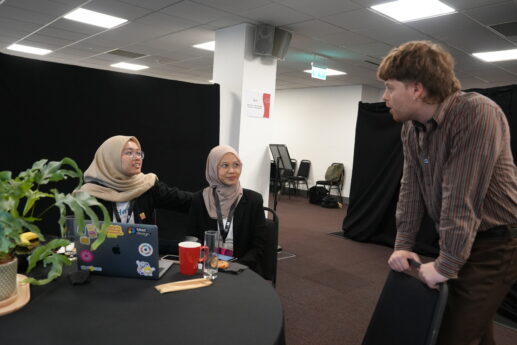

To achieve this, we are using AI technology combined with a mobile app and hardware to turn a phone into a cervical cancer screening tool. This helps healthcare workers perform more accurate tests. We are currently in the process of getting regulatoryapprovals in Indonesia before launching our pilot project.
It all started as a “fun side project” last year but has since become a major part of our lives. We had no idea we’d be in the Hult Prize Finals and what started as a small desire to do some good in the world had changed our lives.”
Xatoms, University of Toronto, Canada
“It’s 2024, and there are still 4.4 billion people without access to clean water. This is the grave injustice Xatoms wants to address. With the technology we have, it’s possible that all the dirty water around the world can be cleaned and turned drinkable.
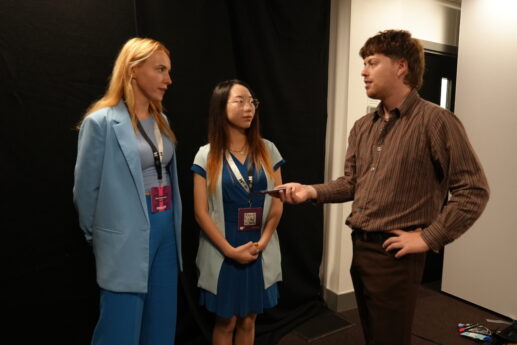

Even in places like Canada and the US, we are targeting a type of chemical pollutant called “forever chemicals” that existing solutions cannot remove, but our patented materials can.”
ProtonCraft, Indian Institute of Technology, India
We are ProtonCraft and our business idea is to convert industrial toxic waste, specifically hydrogen sulfide, from oil refineries into valuable green hydrogen. This is an innovative solution that addresses two key challenges: Carbonizing the refinery industry and providing an alternative energy source. 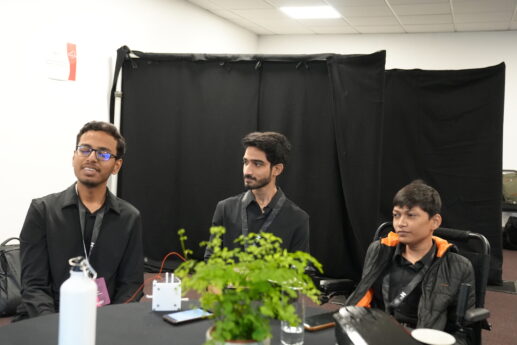

Current refinery methods for dealing with hydrogen sulfide are inefficient, so we innovated a superior solution. Not only are we eliminating toxic waste, but we are also producing hydrogen that the refineries can use directly. Turning something harmful into something useful.
ProtonCraft’s plan is to first pilot their technology with Indian refineries. After proving it in the Indian market, they intend to expand to Arab countries and set up their plants there as well. The founders are confident that this will allow them to generate significant revenue and grow the business.
Bean Around, University College Dublin, Ireland
“Bean Around was born in coffee shops. Almost all of our founding members were baristas in Dublin, so we all saw exactly how many coffee beans were being discarded daily. It was a ludicrous amount, and something needed to be done.
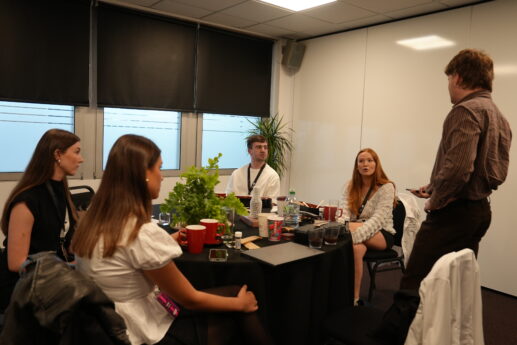

Things have moved incredibly quickly for us. We initially pitched a cosmetic line and then pivoted completely towards a green energy initiative. Overall, there have been around 30 versions of our pitch during the accelerator, the summit, and the finals! This constant evolution has been challenging but now looking to the future, we’re ready for anything that comes our way.”
Korion Health, University of Pittsburgh, US,
Winners
Congratulations to Anna Li and Akshaya Anand, the CEO and CTO of Korion Hea
lth for their win at the Hult Prize Finals in London! Here’s what the winners had to say:
Korion Health was born out of medical school. When you learn how to go into medicine, you’re immediately and consciously aware of the failings of the current system.
Our initial inspiration came from a patient we were treating who had a heart condition but couldn’t come into the clinic regularly due to barriers like transportation and childcare. We realized this wasn’t a rare occurrence and real, innovative equipment thatcan be used at home, by patients was the future.
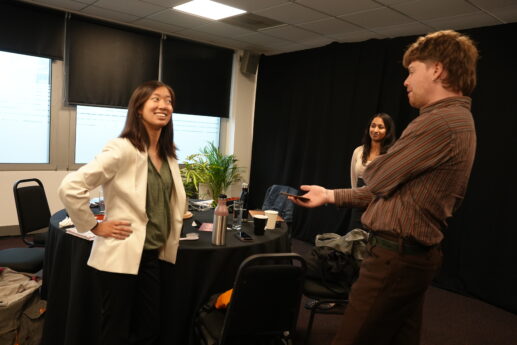

Our product is a USB stethoscope that monitors heart and lung activity. Our web app has a user interface that allows the patient to use it from the comfort of their home. Heart disease is the number one killer in the world today. We feel as doctors it’s our job to tackle this problem head-on. Although medical school hasn’t been the best business education; we are still finding our feet.
By creating tools that make the human body and health processes more transparent and interactive, they hope to foster a deeper connection between patients and their own care.
Healthcare in the US and beyond is broken, and we’re not afraid of saying that. There’s huge levels of distrust and a real disconnect between providers and patients. By creating tools that make everything more transparent, the power is back in the people’s hands.
To channel the frustrations of medical school and turn them into solutions for everyday people and land a real blow in the fight against heart disease, has been nothing short of amazing. It still doesn’t feel real, but this new reality is just the start.
To learn more about the Hult Prize and maybe even get involved yourself, visit the site to get inspired.


